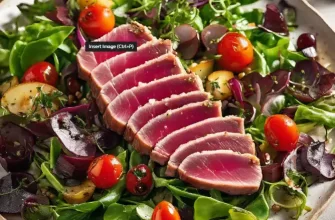Acid reflux and Gastroesophageal Reflux Disease (GERD) are closely related but distinct issues that mainly affect the digestive system. Put simply, acid reflux happens frequently when stomach acid rises up into the esophagus, resulting in a familiar sensation of burning known as heartburn.
GERD, on the other hand, is a more serious and enduring condition. It consists of repeated episodes of acid reflux that can eventually cause significant damage to the esophagus if left untreated. Both conditions usually result from choices in diet and lifestyle. Therefore, knowing which foods to avoid can greatly affect how one deals with the discomfort and potential harm caused by these conditions.
Foods to Avoid
1. High Fat Foods:
Fatty foods like deep-fried items, fatty meats, and full-fat dairy products have the ability to relax the lower esophageal sphincter, which can lead to acid reflux and GERD. Additionally, these foods can slow digestion, resulting in an increased duration of acid production.
2. Citrus Fruits and Juices:
Citrus fruits such as oranges, lemons, and grapefruits, which are part of the citrus family, possess a significant amount of acidity which can exacerbate the symptoms of acid reflux and GERD.
3. Tomato-Based Foods:
The occurrence of acid reflux can be caused by the high levels of acidity found in tomato-based foods such as tomato sauce, soup, or raw tomatoes.
4. Spicy Foods:
Spices have the potential to cause irritation in the esophagus, leading to an overproduction of acid that can result in reflux.
5. Chocolate:
Chocolate has substances like caffeine and theobromine, along with a lot of fat. These components can cause the lower esophageal sphincter to relax, leading to a greater chance of suffering from acid reflux.
| Foods to Avoid | Reason |
|---|---|
| High Fat Foods | Can potentially relax the lower esophageal sphincter and cause a delay in the digestive process. |
| Citrus Fruits | High in acid content |
| Tomato-Based Foods | High in acidity |
| Spicy Foods | May cause irritation to the esophagus and trigger the production of stomach acid. |
| Chocolate | The lower esophageal sphincter can be relaxed by the presence of caffeine, theobromine, and a high level of fat content. |
In Conclusion
By acknowledging and comprehending how diet affects acid reflux and GERD, individuals can make educated decisions about their well-being. Nevertheless, it is important to note that each person’s body may respond differently to different foods, so it is crucial to remember that this list is not exhaustive. Keeping track of personal experiences and maintaining a food diary can aid in identifying the causes of discomfort. Moreover, it is advisable to seek guidance from a medical professional or dietitian before making any substantial alterations to one’s diet.
Effectively controlling acid reflux and GERD symptoms can be achieved by balancing one’s diet with suitable lifestyle adjustments, including engaging in consistent physical activity, maintaining a healthy weight, and refraining from consuming meals late at night or reclining immediately after eating.









